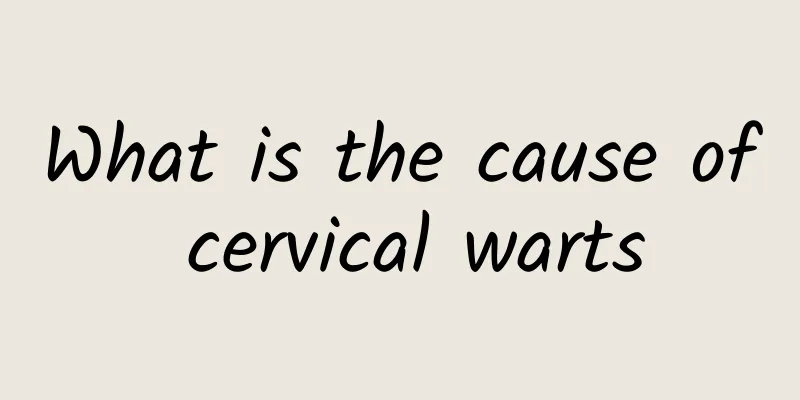How to cure habitual abortion with high cure rate

|
It is very unfortunate to have habitual miscarriage, because among infertile patients, many women are infertile due to habitual miscarriage. Finding an effective method to treat habitual miscarriage is very important to improve the cure rate of habitual miscarriage. So let's talk about how to improve the cure rate of habitual miscarriage. Once patients with habitual miscarriage experience symptoms of miscarriage after pregnancy, they should receive timely and appropriate treatment according to the different types of miscarriage. The principles are divided into: preserving the fetus and continuing the pregnancy, uterine curettage, anti-infection, etc. Immunotherapy can be used for patients with habitual abortion related to immune factors or patients with habitual abortion of unknown causes: Immunotherapy was created by Beer and Tayl in 1981. For patients with immune habitual abortion, allogeneic sensitization therapy is performed using the husband's or other people's lymphocytes to strengthen the immunological maintenance mechanism of pregnancy and inhibit the cellular immune rejection reaction between mother and fetus, achieving the purpose of reducing the abortion rate, and the efficacy can reach 70%-90%. (I) Indications for immunotherapy: 1. Early habitual abortion without clear reasons; 2. No blocking antibodies in the blood; 3. The couple has 2 or more identical HLA antigens, I and II antigen compatibility> 5, II antigen> 4, or anti-D/DR antibodies; 4. No anti-paternal lymphocytotoxic antibodies; 5. No response to the male's one-way mixed lymphocytes, but respond to antigen stimulation from an unrelated third party; 6. Both husband and wife agree to receive immunotherapy. (II) Immunoenhancement therapy: 1. The immunogen can be the husband's lymphocytes, third-party lymphocytes or mononuclear cells in umbilical cord blood. The method is: separate the husband's venous blood with heparin, and inject the washed lymphocytes intravenously. Concentrated white blood cells or whole blood can also be injected intravenously. Inactivate with 200rad X-rays and then inject intradermally to reduce anti-host reactions. 2. Immunoenhancement therapy: Time of immunotherapy: It can be performed before or after pregnancy, preferably before pregnancy, and the best effect is achieved within 40 days of pregnancy. Commonly used methods: 2-4 immunizations before pregnancy, with an interval of 2 weeks between each immunization, and 1-3 booster immunizations around the 6th week of pregnancy. ① Lymphocyte injection: Lymphocytes are extracted from the spouse’s whole blood and concentrated to 3-4×107/mL. The lymphocytes are injected intradermally or subcutaneously into the wife’s bilateral forearms at multiple points every 2-4 weeks, with 0.3-0.5mL injected per point each time, or 3mL injected intravenously for 3-5 times. ② Concentrated cells: Fluid containing isolated white blood cells can be used to treat habitual abortion due to lack of blocking antibodies. Starting from before pregnancy, plasma containing 400 million white blood cells or 250mL of the husband's whole blood is intravenously injected every 3 weeks and the transfusion is completed within 1-2 hours until the 27th week of pregnancy. ③ Placental trophoblast preparation immunotherapy: Taking advantage of the immunogenicity of the placental trophoblast tissue similar to that of white blood cells, add 250mL of saline to 1g of the same type of placental trophoblast preparation (about 100mg of total protein) with a wet weight of 1g. Avoid slow dripping for 1-2 hours. If there is no antigen cell virus antibody, pregnancy can be achieved 1-3 months after treatment. (III) Passive immunization immunoglobulin contains idiotypic antibodies and anti-idiotypic antibodies against placental trophoblast antigens, which can be used for habitual abortion due to insufficient production of autologous anti-idiotypic antibodies. Method: 0.5 mg/kg/month before pregnancy, once at 5 weeks of pregnancy, the dose is 500-600 mg/kg, and then once every 2 weeks, the dose is 300-400 mg/kg, until 22-24 weeks of pregnancy/ (IV) Immunosuppressants are mainly used for patients with habitual abortion who are positive for antisperm antibodies, APA and other autoantibodies and autoimmune diseases. 1. Low-dose maintenance method: 5 mg of cortisone, 1-3 times a day, 3-12 months; 2. High-dose shock method: 98 mg/d of methylcortisone for 7 days, or 10 mg/d of cortisone for 7 days. 3. Local vaginal medication: 10 mg/d of cortisone for 6 months. 4. Women with habitual abortion who suffer from autoimmune diseases can use 30 mg/d of cortisone. (V) Other treatments are mainly suitable for patients with APA-positive recurrent abortion. 1. Heparin treatment; 2. Low-dose aspirin + prednisone; 3. Condom therapy. |
<<: What are the symptoms of miscarriage?
>>: Is immunotherapy necessary for abortion?
Recommend
Vulvar itching infection route
Patients often ask: Is vulvitis contagious? What ...
Tips on preventing cervical precancerous lesions
What are the methods to prevent women from having...
Care for cervical precancerous lesions is very important
Cervical precancerous lesions have been on the ri...
Eating eggs wisely can also lower cholesterol! Nutritionist Zhao Hanying recommends: Calcium-supplementing three-color egg recipe
Still worried about high cholesterol after eating...
To prevent "post-COVID-19 sarcopenia", you must supplement these two nutrients! Nutritionist: Identify the 5 common symptoms of sarcopenia
After being infected with COVID-19, you may sudde...
How long does it take for menstruation to start after ectopic pregnancy surgery?
How long does it take for menstruation to start a...
Painless abortion is not the sooner the better
Women who have an unexpected pregnancy often thin...
Prevention of uterine fibroids should start from daily life
Women are prone to gynecological diseases when th...
Cost of recovery from cervical precancer
How much does cervical precancer surgery cost? Su...
What harm does hydatidiform mole do to the body
Molar pregnancy can cause many harms to the body,...
What medicine can I take for uterine fibroids? Can I take medicine to cure uterine fibroids?
Uterine fibroids are a common benign tumor in wom...
Where is the best place to check for cervical warts?
At present, cervical warts are a common disease. ...
Is microwave treatment effective for cervical erosion? Three questions about microwave treatment for cervical erosion
In life, the proportion of women suffering from c...
Can central amenorrhea be cured?
Can central amenorrhea be cured? This is a highly...
Symptoms and treatment of cervical hypertrophy
Cervical hypertrophy is usually caused by chronic...









